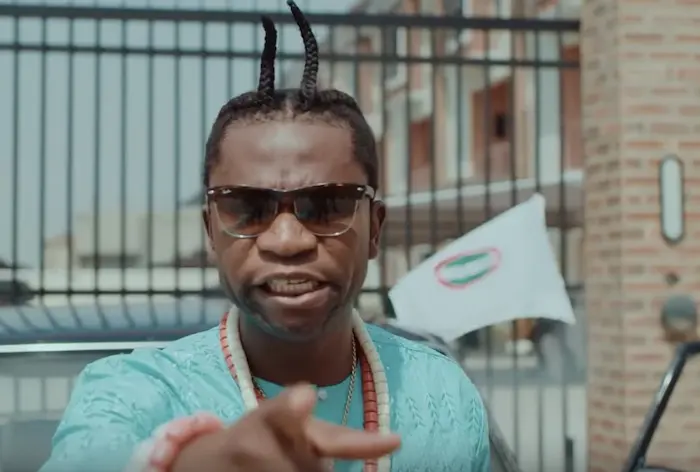Controversial rapper Speed Darlington, also known as Darlington Okoye, has stirred up a storm by retracting his previous stance on his preference for Igbo women as potential partners. In a recent video message shared on his social media platforms, Darlington made a dramatic reversal, advising eligible bachelors to steer clear of marrying Igbo women, citing them as unsuitable for marriage.
Darlington’s video message, delivered with his trademark directness, sparked immediate controversy. He launched into a series of criticisms against Igbo women, alleging them to be “proud and promiscuous.” He claimed that his extensive travel experiences, courtesy of his profession, afforded him the authority to issue such advice.
One of the key points of contention in Darlington’s message was his assertion that Igbo women are greedy and unappreciative, drawing parallels with black American women in his view of their perceived insatiability. He further emphasized his opinion by contrasting Igbo women with those from Yoruba and Hausa ethnicities, suggesting that they are less prideful and demanding.
Perhaps the most inflammatory remark was Darlington’s characterization of Igbo women as the “number one prostitutes in Nigeria,” a statement that garnered significant backlash. Many critics accused him of unfairly generalizing his personal experiences and projecting his frustrations onto an entire ethnic group. Furthermore, his comments about Igbo women being predominant among social media feminists added fuel to the controversy.
The backlash against Darlington’s statements was swift and intense, with many condemning his remarks as sexist, stereotypical, and divisive. Critics argued that his comments were not only offensive but also reinforced harmful stereotypes and perpetuated prejudice against Igbo women.
In summary, Speed Darlington’s abrupt reversal on his preference for Igbo women and his subsequent disparaging remarks have ignited a heated debate on social media, highlighting broader issues of gender, ethnicity, and cultural stereotypes in Nigerian society.

